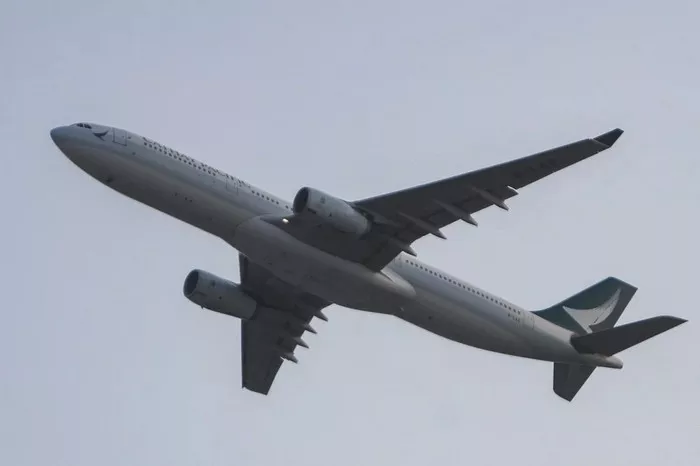Several Asian airlines announced on Wednesday that they would be re-routing or canceling flights to and from Europe due to escalating tensions between India and Pakistan. The two nuclear-armed nations are engaged in their most intense conflict in over 20 years, with India launching attacks on Pakistan and Pakistani Kashmir, while Pakistan claims to have shot down five Indian fighter jets.
As a result of the fighting, domestic flights within both India and Pakistan were severely disrupted. Several Indian airports were shut down, leading to cancellations of flights from major carriers including Air India, IndiGo, SpiceJet, and Akasa Air.
Flight-tracking website Flightradar24 reported that both India’s northwestern airspace and Pakistan’s entire airspace were largely devoid of civilian aircraft, with only a few flights continuing their routes.
In response to the conflict, Taiwan’s EVA Air announced adjustments to its European routes to avoid airspace affected by the ongoing fighting. One flight from Vienna will return to the city, while another flight from Taipei to Milan will be rerouted to Vienna for refueling before continuing to its final destination, the airline confirmed in a statement.
Korean Air also announced a change in its flight paths, re-routing its Seoul Incheon–Dubai flights over Myanmar, Bangladesh, and India, avoiding Pakistani airspace. Thai Airways similarly diverted several flights to Europe and South Asia, warning passengers of potential delays.
Taiwan’s China Airlines activated its contingency plan to ensure passenger and crew safety, although the airline did not provide specific details. The company’s non-stop flight from Taipei to London was canceled, as shown on the website of Taiwan’s main international airport, Taoyuan.
Vietnam Airlines acknowledged that the tensions were impacting its flight schedules, stating that further details on re-routing would be provided later. Additionally, both Air France and Lufthansa confirmed that they were adjusting their flight paths to avoid crossing over Pakistan.
These detours have led to longer flight times, with some routes taking up to 100 minutes longer than usual, resulting in increased fuel consumption and higher operational costs.
According to Flightradar24, the last commercial flights to leave Pakistani airspace included an Ethiopian Airlines plane en route to Seoul and a Turkish Airlines flight heading to Istanbul from Karachi.
In a move to ensure safety, Qatar Airways temporarily suspended all flights into Pakistan, as confirmed in a social media post.
Some flights from India to Europe were also seen taking longer routes. For example, Lufthansa flight LH761 from New Delhi to Frankfurt diverted its path to the Arabian Sea near Surat, taking a longer route than on previous days, Flightradar24 reported.
Before Russia’s invasion of Ukraine, many Europe-bound flights from Taiwan transited through Russian airspace. However, following Taiwan’s alignment with Western sanctions on Moscow, Taiwanese airlines have been rerouted over India, Pakistan, and Central Asia instead.
The Association of Asia-Pacific Airlines expressed concern over the ongoing situation, highlighting the broader impact on airline operations. The association pointed out that the risks associated with GPS spoofing, which can interfere with flight operations by manipulating GPS data, are among the highest safety concerns faced by the industry.
GPS spoofing, a malicious technique that can divert commercial airliners off course, remains a critical challenge in conflict zones.

